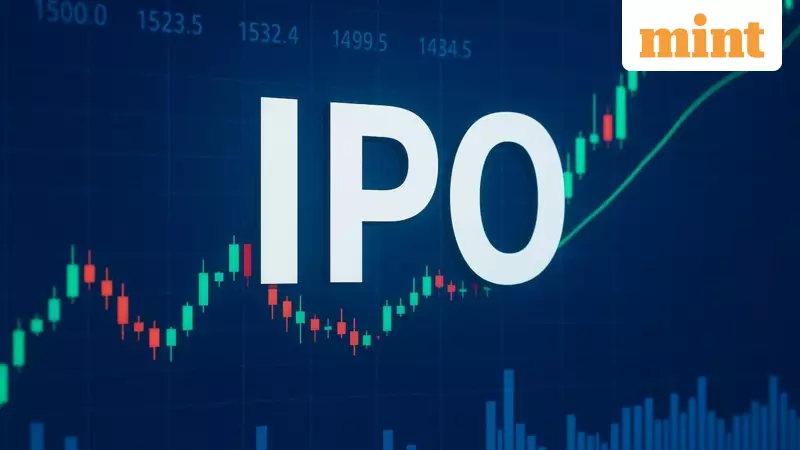
Investors Rush Pre-IPO Deals Amid Fear of Missing Out
Indian markets are witnessing a significant surge in pre-IPO placement activity as institutional investors scramble to secure stakes in promising companies before they go public. Driven primarily by the fear of missing out (FOMO), this trend has seen nine companies collectively raise ₹4,300 crore through private share sales just before their initial public offerings.
The data, current as of the first week of November 2025, shows this year's pre-IPO placement figures have already surpassed the ₹3,950 crore raised through the entire year of 2024. This resurgence marks a dramatic comeback for such deals after they slowed significantly last year.
High-Profile Deals Highlight Investor Enthusiasm
Recent transactions demonstrate the intensity of investor interest. Think Investments acquired ₹136 crore worth of shares from 14 employees of edtech giant Physics Wallah just last week. Meanwhile, SBI Funds, DSP India Fund and Think India Opportunities Fund collectively invested ₹144 crore in aerospace manufacturer Aequs Ltd.
Eyewear retailer Lenskart also joined the trend, raising approximately ₹100 crore from SBI Optimal Equity Fund and SBI Emergent Fund after previously securing ₹90 crore from billionaire investor Radhakishan Damani.
"In the current market, we are seeing a resurgence of late-stage interest in pre-IPO placements, particularly in high-growth and consumer-facing businesses," said Prakash Bulusu, joint chief executive officer of IIFL Capital.
Bulusu explained that investors want to lock in valuations that often appear more attractive than post-listing levels. He added that the next few quarters could see more such transactions as long as markets remain stable and domestic liquidity stays strong.
Understanding Pre-IPO Placement Mechanics
Pre-IPO placements differ significantly from traditional funding rounds. A pre-IPO placement involves a private sale of unlisted shares before the formal IPO process begins. This contrasts with anchor book placements, which represent a specific, regulated allocation of shares to institutional buyers just one day before the IPO opens to public subscription.
The timing of these placements is crucial. They typically occur much closer to the IPO, often after the price band is established, allowing select investors to purchase shares at prices more aligned with market expectations.
An anonymous founder of an IPO-bound company revealed that such placements give investors a head start on building substantial positions while demonstrating confidence in the company's long-term potential.
Regulatory Changes and Market Impact
The surge in pre-IPO activity coincides with the Securities and Exchange Board of India's (SEBI) 24 October circular that barred mutual funds from participating in pre-IPO placements. However, market experts anticipate that mutual funds will continue their participation through alternative investment funds (AIFs) and portfolio management services (PMS).
According to Sudhir Bassi, executive director of capital markets at Khaitan & Co, shares purchased in pre-IPO placements typically face a six-month lock-in period, which helps prevent immediate selling pressure after listing.
"The momentum will likely continue, supported by a maturing ecosystem and a growing focus on risk management and returns," predicted Akhoury Winnie Shekhar, partner at CMS IndusLaw.
Contrasting Trends in Early-Stage Funding
While late-stage pre-IPO placements are booming, earlier pre-IPO funding rounds have experienced a significant slowdown. Companies raised only ₹24,470 crore through such rounds in 2025 (as of 7 November), representing a dramatic 46% decrease from the ₹45,181 crore raised in 2024.
Experts attribute this decline to narrowing valuation gaps between private and public markets. As the potential upside for early investors shrinks, the attractiveness of investing 12-18 months before listing diminishes correspondingly.
Bassi noted that "the price at which a pre-IPO investment happens 18 months before listing is not a benchmark for the IPO price" and can move in either direction depending on company performance and market conditions.
Secondary pre-IPO activity has dropped even more sharply to ₹3,618 crore this year from ₹16,434 crore in 2024, indicating that early investors are holding back and choosing to sell through offer-for-sale routes or after listing.
Broader Market Participation
The data reveals that pre-IPO placement activity has been most visible in issues under ₹1,000 crore, where institutions are using these placements to secure allocations ahead of high-demand listings.
Companies including Standard Glass Lining Tech, Scoda Tubes, Arisinfra Solutions, Brigade Hotels Venture, All Time Plastics, Patel Retail, and GK Energy have attracted marquee investors such as Amansa Investments, Malabar India Fund, 360 One Special Opportunities Fund, and Kotak Iconic Fund for pre-IPO placements this year.
As more companies prepare to launch IPOs in the coming months, market observers expect this pre-IPO placement frenzy to intensify, driven by continued investor FOMO and the search for attractive entry points before public market debuts.





